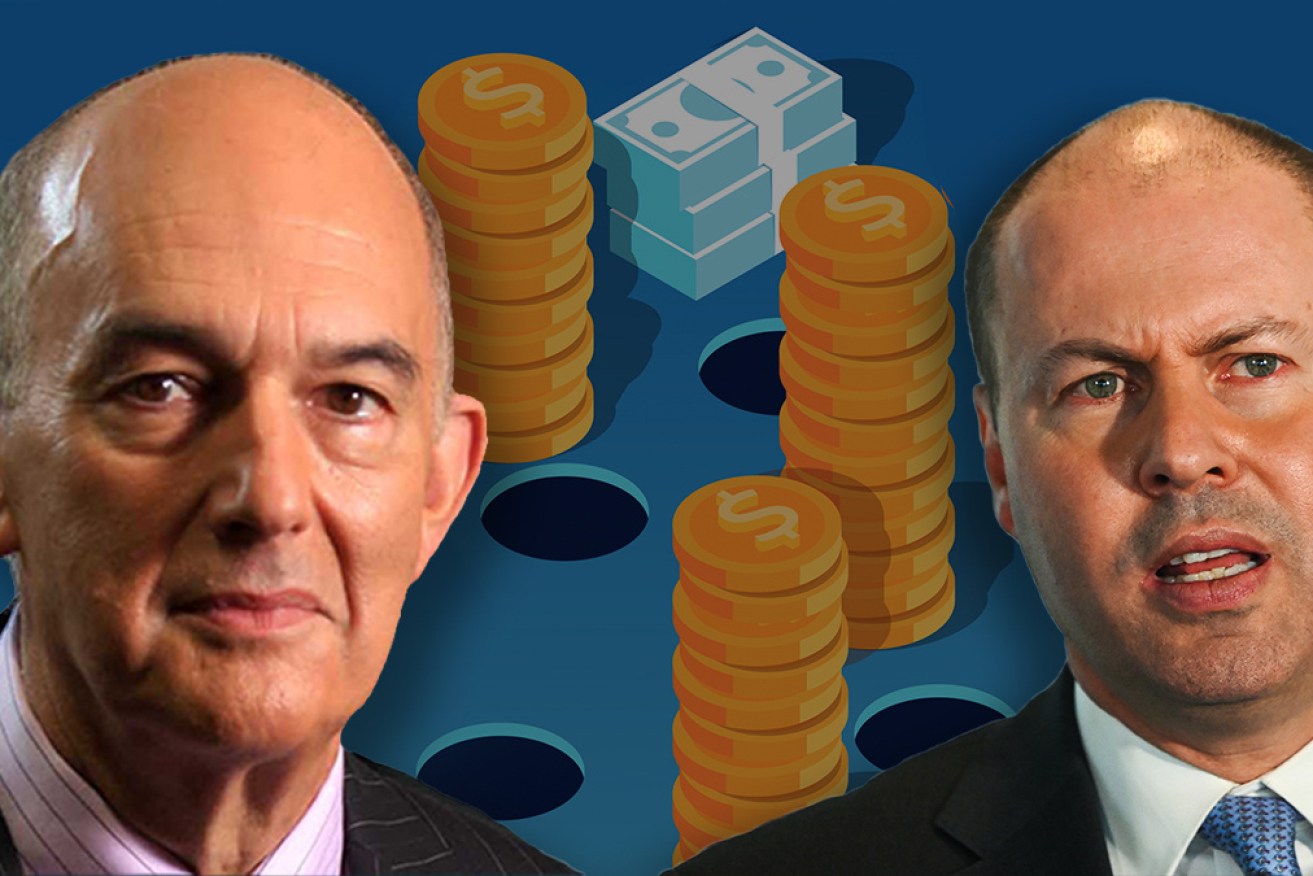Paul Bongiorno: Treasurer will need more chips on the red for his JobKeeper gamble to pay off


Scott Morrison did his best to stall international moves away from coal in Glasgow but no longer pretends it is not inevitable., writes Paul Bongiorno. Photo: TND/Getty
The Treasurer was nowhere to be seen on Monday when the first stage of the scaling down of the JobKeeper wage subsidy came into play.
Combined with the phase down of the JobSeeker unemployment benefit, it means a $23 billion withdrawal of household support for the December quarter.
Josh Frydenberg is rolling the dice on the economy somehow improving in other ways without the massive stimulus these two have provided since the pandemic struck.
But he is promising to make amends in the budget.
In lines put out on Sunday night, Mr Frydenberg promised “the Morrison government will continue to support Australians through COVID-19 and next week’s budget will focus on our economic recovery and creating jobs to secure Australia’s economic future”.
Shadow treasurer Jim Chalmers flew to Cairns in far North Queensland on Monday to highlight just how much making up the government will have to do to compensate for the diminished support, let alone deliver the recovery.
On Cairns radio Dr Chalmers said in the local federal electorate of Leichhardt “there are now more than 7000 businesses relying on JobKeeper to support more than 27,000 workers”.
“There’s something like $24 million a fortnight which won’t be circulating in the local economy”. Imagine what “this town could do with $24 million a fortnight circulating in the shops, restaurants and cafes.”

Dr Jim Chalmers says the government has scaled back JobKeeper and JobSeeker too early. Photo: AAP
Much further south, Byron Bay – another coastal centre similarly heavily reliant on domestic and international tourism – featured in an ABC Four Corners report on the impact of the reduced support.
Two out of three businesses in the town are accessing the assistance to keep their workers on the books and paid.
Mayor Simon Richardson told the program the changes will savage the community.
“It’s going to create such social disruption that I don’t think the governments are quite comprehending,” Cr Richardson said.
Dr Chalmers says it makes no sense for the Morrison government “to be ripping out vital support from the economy without a comprehensive jobs plan to replace it”.
If Mr Frydenberg needs any help in designing that job plan, he could do no better than to consult the survey of 49 eminent economists by The Conversation-Economic Society of Australia.
Fifty five per cent nominated social housing as the top priority because it creates jobs and alleviates homelessness. By one estimate there is a shortage of 433,000 such houses nationally.
Any reluctance to go full throttle here could be explained by the fact that it can also transfer non-government voters into marginal electorates.
Victorian Liberals credit the loss of the seat of Corangamite to the state Labor government doing just that in the years before the last federal election.
Fifty one per cent of the economists nominate permanently raising the JobSeeker payments because this guarantees immediate spending back into the economy.
By contrast, only 20 per cent nominated bringing forward the personal income tax cuts, something the Treasurer is certainly intent on.
The latest Deloitte Access Economic Budget monitor is forecasting a record budget deficit of $198.5 billion but that’s before extra stimulus spending is unveiled in a week’s time.
Economist Chris Richardson is urging Mr Frydenberg not to hold back.
Mr Richardson believes the tax cuts will not add to Australia’s inequality – they just won’t address it.
They may be of some help but will not give the economy the boost needed to extricate it from the recession, or even the depression some fear is looming.
Last week in a piece of careful pre-emption, the Treasurer softened up the nation for eye-watering numbers deep in the red – a long way from the “back in the black” mantra pre-COVID.
Mr Frydenberg committed to keep boosting business and consumer confidence on top of the $314 billion in support already announced.
He will keep doing this until unemployment is “comfortably back under 6 per cent”.
Deloitte doesn’t think this will happen any time before the next scheduled federal election; all the more reason for the Treasurer to “gamble big” if he wants to get the big win the nation is desperate for.
Paul Bongiorno AM is a veteran of the Canberra Press Gallery, with 40 years’ experience covering Australian politics









